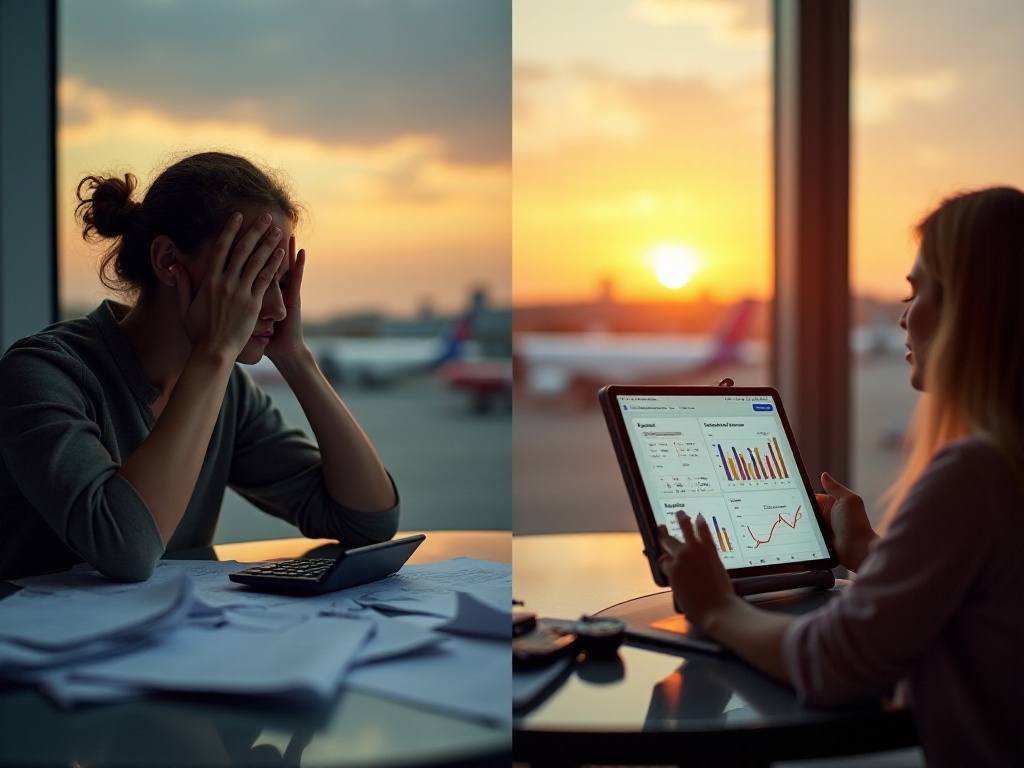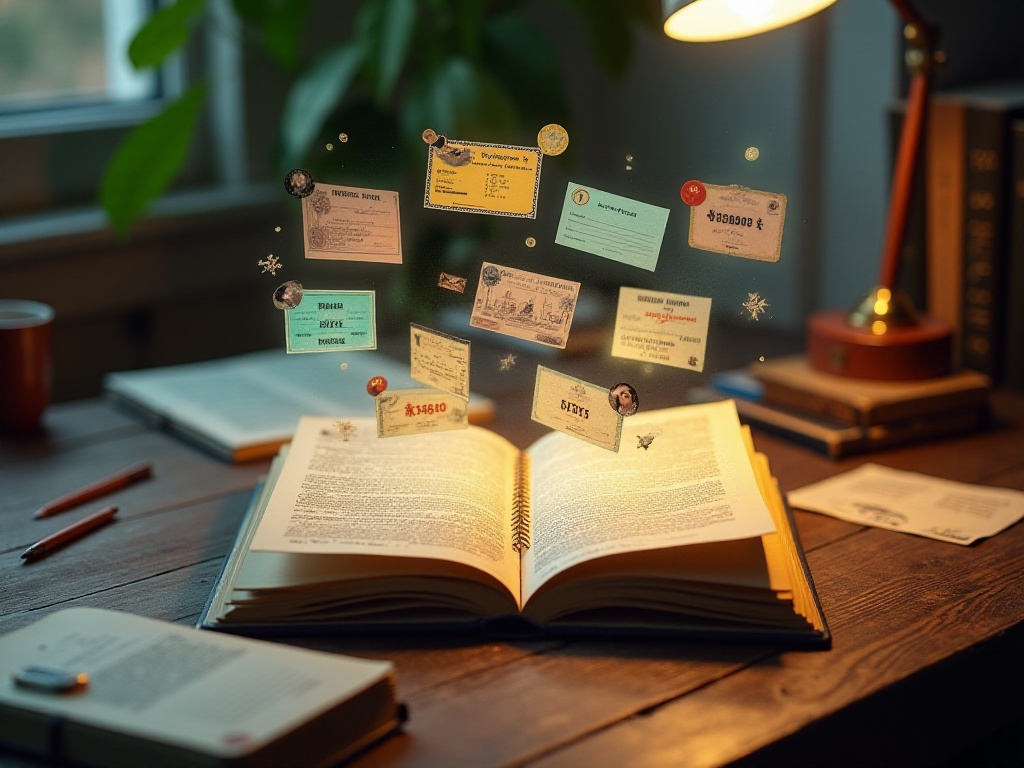Opening Words
As a young professional who recently started working, I deeply understand everyone's concerns about travel budgets. Whenever someone posts photos of the Eiffel Tower on social media, there's always someone asking in the comments: "How much did this trip cost?" Honestly, this question isn't simple to answer. Some people want to spend all their money on shopping, others are passionate about Michelin-starred restaurants, and some prefer staying in hostels to make friends. Today, based on my personal experience, I'll guide you step by step on how to plan a reliable travel budget, making your Paris dream more achievable.
Why Make a Budget
I know many people think budgeting is troublesome - isn't having money enough? I used to think the same way until an experience in Paris completely changed my mind. Back then, I was quite impulsive, buying bags and clothes whenever I liked them, and choosing restaurants based on my mood. As a result, with three days left in my trip, I discovered my credit card was nearly maxed out. I had to survive on supermarket bread and couldn't even afford to go up the Eiffel Tower - it was truly miserable.
Since then, I've understood the importance of budgeting. It's like a navigation system, showing you how to spend money wisely in the City of Romance. For instance, knowing the average cost of a Michelin-starred restaurant allows you to save in advance, rather than discovering you can't afford it once you're there. Or understanding Paris's accommodation prices helps you choose the most value-for-money areas and room types.

Major Expense Categories
Based on my years of travel experience, I've identified five major spending categories. Each has its characteristics and potential for savings, let me explain in detail.
Regarding transportation costs, just the flight to Paris can be overwhelming. During off-season, you might find special deals for ¥3,000-4,000, but peak season tickets easily cost ¥7,000-8,000. I was lucky to snag a special deal at 2 AM on a Tuesday, spending ¥4,500 for a round trip. In Paris, the metro is the most economical choice, with single tickets at €1.90 (about ¥15). I recommend buying a book of 10 tickets for better value. As for taxis, unless you miss the last metro, I really don't recommend them as the base fare is around ¥50.
Accommodation costs best reflect personal style. On my first Paris trip, I stayed in a hostel to save money, spending only ¥200+ per night and meeting many interesting people. Later, when working, I chose a boutique hotel in the Marais district, costing ¥1,000+ per night, with an excellent location within walking distance to Notre-Dame. If you want luxury, the Ritz Hotel rooms start at tens of thousands per night, though I only dared to take photos in the lobby.
Regarding dining, Paris is truly a love-hate city. You can buy ready-made sandwiches from supermarkets for €15 (about ¥120) per meal. Main courses at regular restaurants usually cost €20-30 (about ¥160-240), and if you want wine, expect to spend ¥300+ per meal. Michelin-starred restaurants are even more extreme - I had lunch at a two-star restaurant last year, spending ¥1,200 per person, with dinner prices being even more frightening. However, in the culinary capital, there are times when you should indulge.
Activity costs mainly include attraction tickets and special experiences. Paris museums are a significant expense but absolutely worth it. The Louvre costs €17, with an additional €70 for a guide. Eiffel Tower tickets are priced by level, with top-floor access costing €26. I highly recommend local food experiences, like champagne tasting in the Champagne region - though it costs over €200, it's unforgettable.
Other expenses may seem minor but add up significantly. The visa fee of ¥800 is mandatory, and I recommend comprehensive travel insurance for about ¥500. As for shopping, it's really hard to control, especially with those luxury stores on the Champs-Élysées - they're so tempting. I spent over ¥3,000 just on skincare products at Galeries Lafayette last time.

How to Budget
Let's discuss how to actually create a budget. First, you need to honestly assess your financial situation. I suggest reviewing your expenses from the past six months to evaluate how much you can allocate for travel. Don't be embarrassed - living within your means is the right approach. Based on my experience, you need at least ¥15,000 for a week in Paris. Of course, if you want better accommodations and dining, this number needs to increase.
Understanding destination prices is also important. Here are some examples: a monthly metro pass costs €75 (about ¥600); a Starbucks latte is €4.5 (about ¥35); fast food meals range from €10-15 (¥80-120). This information helps you plan daily expenses more accurately. I usually keep these prices in my phone notes to avoid feeling lost once there.

Budget Allocation
For budget allocation, I have a simple "4-3-2-1" principle, which I've found to be the most practical approach.
Transportation and accommodation typically take 40% of the total budget. If your total budget is ¥15,000, this part would be ¥6,000. I suggest keeping airfare under ¥5,000, which leaves about ¥1,000 per night for accommodation - enough for a decent three-star hotel in Paris.
Dining takes 30%, or ¥4,500. It sounds like a lot, but with Paris prices, a daily food budget of ¥640 is just right. This allows for an elegant breakfast of croissant and coffee at a café (€15), lunch at a small restaurant (€25), and dinner at a nice restaurant (€40). Of course, if you want to try Michelin-starred restaurants, you'll need to save in other areas.
The 20% (¥3,000) for activities and tickets might seem small, but it's sufficient with good planning. For instance, the Paris Museum Pass costs €48 and allows unlimited access to over 60 museums and attractions for 6 days. If you want special experiences, choose 1-2 that interest you most, like champagne tasting or baking classes, to make the budget work.
The final 10% (¥1,500) is for other expenses, which seems small but remember this is just the basic budget. If you plan to shop, prepare additional funds. I usually use this money for small souvenirs like Eiffel Tower models and Paris map postcards - both affordable and meaningful.

Money-Saving Tips
After several trips to Paris, I've gathered many money-saving tricks to share with everyone.
First, regarding accommodation, many people think they must stay in the city center, but that's unnecessary. I once stayed in Paris's 13th arrondissement, very close to a metro station and surrounded by locals. Not only was the rent cheaper, but I also experienced authentic Parisian life. That apartment was only ¥600+ per night, about ¥300-400 cheaper than the city center. Plus, the 13th district has many Chinese restaurants for when you're tired of French cuisine.
For dining, there are many ways to save. Many restaurants offer business lunch sets, usually including appetizer, main course, and dessert for €15-20, much cheaper than dinner. I love buying ingredients from local supermarkets, especially cheese, ham, and bread - affordable and perfect for picnics. I remember having bread and cheese on the Luxembourg Gardens lawn, which was particularly enjoyable.
There are also many ways to save on tickets. Many museums have free admission times, like the Louvre's first Sunday of each month, though it gets very crowded. If the timing doesn't work, I recommend the Paris Museum Pass, as buying individual tickets can easily exceed your budget. Online booking is also important - it saves money and helps avoid queues. When I visited the Arc de Triomphe, I bought tickets online in advance, saving 20% and avoiding the long line.
For transportation, if staying longer, consider weekly or monthly metro passes. Single tickets are €1.9, but a book of 10 (called carnet) costs only €16, saving quite a bit. Another tip: you don't need to take a taxi from the airport - RER Line B (suburban express) costs only about €10. It takes longer but the money saved could pay for a nice meal.
Shopping is another major expense. For luxury goods, I recommend Galeries Lafayette or Printemps department stores as you can get tax refunds. I saved over ¥1,000 in tax refunds when I bought a bag last time. Note that tax refunds have minimum purchase requirements and must be processed at the airport. For beauty products, Sephora and local pharmacies are much cheaper than boutiques.

Final Advice
Budgeting isn't about restricting spending but making travel more comfortable. You can absolutely adjust the budget allocation based on your interests. For instance, I love food, so I spend more on dining and choose more cost-effective accommodation options.
Most importantly, keep emergency funds - I recommend at least 15% of your total budget. You never know what might happen during travel, whether it's a sudden desire to buy a bag or wanting to stay longer. Having this money gives peace of mind.
I remember my first Paris trip - I missed many wonderful experiences because I didn't have emergency funds. Now for each trip, I prepare extra money. Better to prepare more than regret later. After all, the shock of seeing the Eiffel Tower for the first time and the surprise of tasting authentic croissants are priceless.


